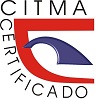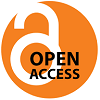Orientación educativa en la clase encuentro
Educational orientation in the class meeting
Keywords:
Educational guidance, meeting class, professional trainingAbstract
The teaching-learning process in higher education is in constant renewal, in order to meet the demands that are raised for the training of professionals. There is an important gap for the study of educational guidance in the teaching-learning process, based on its foundations. Empirical and fragmented educational guidance persists in the classroom that is not supported on the basis of a characterization that actually measures indicators related to educational guidance in the teaching-learning process. The objective of this study is to determine the particularities of the educational orientation in the meeting class, based on a system of indicators for its characterization in the second year of the Bachelor's Degree in Primary Education at the Agrarian University of Havana. It focuses on the analysis of educational guidance in the encounter class. Theoretical and empirical research methods are used that allow reaching results. References on the meeting class and educational guidance were systematized, which allowed determining the dimensions and indicators for the study of educational guidance carried out by the teacher in his class. Information gathering techniques were designed and applied to teachers and students of the second year of the Bachelor's Degree in Primary Education of the Meeting Course at the Agrarian University of Havana; study sample. Their results allowed us to know the particularities of educational guidance in the teaching-learning process, specifically in the meeting class. All the analysis allowed to demonstrate the validity of the indicators and the need to guide the students from the meeting class in their training process.
Downloads
References
Alfonso E., Danurkis B. y Arisyennnys Y., (2011). La clase encuentro una herramienta necesaria para lograr una mayor efectividad del trabajo independiente en la universalización de la enseñanza superior. Cuadernos de Educación y Desarrollo. 3(27).
Alfonso, I. y Serra, R. (2016). ¿Por qué es necesaria la orientación educativa en la universidad de hoy? Referencia Pedagógica, 3,16-27. https://rrp.cujae.edu.cu/index.php/rrp
Comisión Europea, UNESCO, OIT, OCDE, CEDEFOP, y ETF. (2019). Investing in career guidance. Retrieved octubre, 2021, Desde https://www.cedefop.europa.eu
González - Benito, A. (2018). Revisión teórica de los modelos de orientación educativa. Revista Caribeña de Investigación Educativa, 2(2), 43-60. Recuperado de: https://doi.org/10.32541/recie.2018.v2i2.pp43-60
González, N. y Alfonso, I. (2018, 5 al 10 de febrero). Profesionalización de la orientación educativa en la formación de ingenieros y arquitectos. Ponencia presentada en el 11no Congreso Internacional de Educación Superior, XXI Taller Internacional de Pedagogía de la Educación Superior. La Habana, Cuba.
González, N., Alfonso, P. I., Bermúdez, M. R., y Rodríguez Blanco, M. de la C. (2019). Transformaciones necesarias de la orientación educativa en el proceso de enseñanza aprendizaje del ingeniero mecánico. Revista Referencia Pedagógica, 7(2), 246 – 263 p. Recuperado a partir de https://rrp.cujae.edu.cu/index.php/rrp/article/view/188
Hedesa P., Y. (2000). La clase como forma fundamental de organización del proceso docente educativo. Compilación. Instituto Pedagógico Latinoamericano y Caribeño. La Habana. Recuperado de https://profesorailianartiles.files.wordpress.com/2013/03/la-clase-como-forma fundamental.pdf
Marín, L., Suárez, J., López, Y., y Pelegrín, A. (2018). La clase encuentro en la Educación Superior: algunas consideraciones teóricas-metodológicas. Rehuso, 3(3), 88-100. Recuperado de: https://revistas.utm.edu.ec/index.php/Rehuso/article/view/1505
Ministerio de Educación Superior (MES). (2018). RM 02 de 2018 del Reglamento de Trabajo Docente y Metodológico de la Educación Superior en la República de Cuba. Gaceta Oficial (25). Artículo 133, 43 pp. https://instituciones.sld.cu/faenflidiadoce/files/2018/08/Resoluci%C3%B3n-2-del-2018
Molina C., D. & De Luca, C. (2009). Orientacion integral en los centros educativos y en el aula. Electronic JournalofResearch in EducationalPsychology. 7(3). Recuperado de: https://www.redalyc.org/pdf/2931/293121984022.pdf
Paz Domínguez, I. M.; Gámez R. E. y Vinent, M. B. (2016), La clase como espacio y método fundamental para la orientación educativa, Maestro y Sociedad, Número especial 2, pp. 3-14. https://maestroysociedad.uo.edu.cu/article/view
Rodríguez, J. M. et al. (2018, 5 al 10 de febrero). Modelo pedagógico de atención educativa integral en función de la permanencia estudiantil universitaria. Ponencia presentada en el 11no Congreso Internacional de Educación Superior, XXI Taller Internacional de Pedagogía de la Educación Superior. La Habana, Cuba.
Published
How to Cite
Issue
Section
License
Copyright (c) 2023 Milagros de la Caridad Rodríguez Blanco , Norma González Ruda

This work is licensed under a Creative Commons Attribution 4.0 International License.
Horizonte Pedagógico es una revista Open Access, lo que quiere decir que todo su contenido es accesible libremente sin cargo para el lector o su institución. Los usuarios están autorizados a leer, descargar, copiar, distribuir, imprimir, buscar o enlazar a los textos completos de los artículos de esta revista sin permiso previo del editor o del autor, de acuerdo con la definición BOAI de open access. Los autores que publican en esta revista están de acuerdo con los siguientes términos: Los autores conservarán los “Derechos de autor” y garantizan a la revista el derecho de ser la primera publicación del trabajo. La revista se encuentra protegida bajo una licencia internacional de Creative Commons Attribution License Atribución 4.0 Internacional (CC BY NC 4.0), que permite a otros compartir (copiar y redistribuir el material en cualquier medio o formato) y adaptar (remezclar, transformar y construir a partir del material), para cualquier propósito, incluso comercialmente. Bajo las siguientes condiciones: atribución (usted debe dar crédito de manera adecuada, brindar un enlace a la licencia, e indicar si se han realizado cambios y no comercial — Usted no puede hacer uso del material con propósitos comerciales. Puede hacerlo en cualquier forma razonable, pero no de forma tal que sugiera que usted o su uso tienen el apoyo de la revista o el autor de la publicación.




















